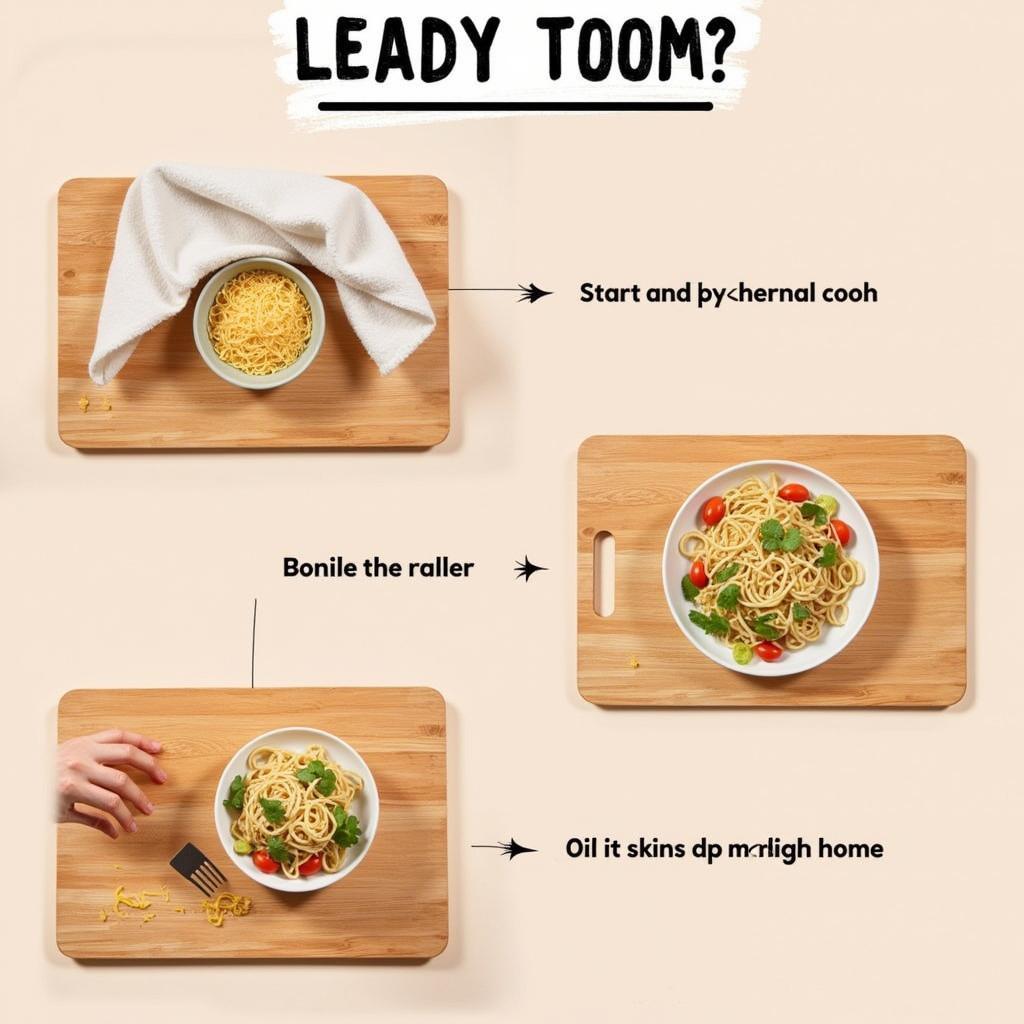Noodle Boards for Electric Stoves: A Comprehensive Guide
December 1, 2024Noodle boards are becoming increasingly popular for electric stove owners who want to protect their glass cooktops. These durable and heat-resistant boards provide a safe and convenient surface for cooking, especially when working with heavy pots and pans. This guide will cover everything you need to know about choosing and using noodle boards for your electric stove.
Understanding the Benefits of Noodle Boards for Electric Stoves
Noodle boards offer several advantages for electric stove users. They protect the smooth glass surface from scratches and chips, which can occur when moving heavy cookware. They also provide a more stable cooking surface, preventing pots and pans from sliding or tipping. Additionally, noodle boards can distribute heat more evenly, improving cooking performance. Finally, they make cleaning up spills and splatters much easier.
Protecting Your Glass Cooktop with a Noodle Board
Glass cooktops are sleek and modern, but they’re also susceptible to damage. A noodle board acts as a protective barrier between your cookware and the glass, preventing scratches and other blemishes. This is particularly important if you frequently use cast iron or other heavy cookware.
Enhancing Cooking Stability and Performance
Electric stoves can sometimes have a slippery surface, making it difficult to keep pots and pans stable. A noodle board provides a textured surface that enhances grip and stability, reducing the risk of accidents. Furthermore, certain types of noodle boards can help distribute heat more evenly across the cooking surface, leading to more consistent cooking results.
Choosing the Right Noodle Board for Your Electric Stove
Not all noodle boards are created equal. When selecting a noodle board, consider the following factors:
- Material: Noodle boards are typically made from wood, bamboo, or silicone. Each material has its pros and cons. Wooden boards are durable and aesthetically pleasing, but they require more care. Bamboo is a sustainable and eco-friendly option. Silicone boards are heat-resistant and easy to clean, but they may not be as durable as wood or bamboo.
- Size: Measure your stovetop to ensure you choose a noodle board that fits comfortably. You should also consider the size of your cookware.
- Thickness: Thicker noodle boards offer better heat distribution and protection, but they can also be heavier and more difficult to store.
- Features: Some noodle boards have handles for easy transport, non-slip feet, or built-in cutting boards.
Comparing Different Noodle Board Materials
Each material offers unique advantages and disadvantages. Consider your cooking style and preferences when making your choice.
Using and Caring for Your Noodle Board
Proper use and care can extend the life of your noodle board. Always ensure the board is clean and dry before using it. Avoid placing the board directly over a high flame or burner. Never leave a hot pot or pan unattended on a noodle board.
Cleaning and Maintaining Your Noodle Board
Cleaning your noodle board is simple. Most boards can be wiped down with a damp cloth. Wooden boards should be oiled periodically to prevent cracking and warping. Avoid using abrasive cleaners or scouring pads, as these can damage the surface of the board.
 Cleaning and maintaining a wooden noodle board
Cleaning and maintaining a wooden noodle board
Conclusion
Noodle boards are a valuable addition to any electric stove kitchen. They offer protection, stability, and improved cooking performance. By choosing the right noodle board and caring for it properly, you can enjoy the benefits for years to come. Investing in a quality noodle board is a smart move for any electric stove owner.
FAQ
- Can I use a noodle board on an induction cooktop?
- What is the best material for a noodle board?
- How do I clean a silicone noodle board?
- What size noodle board do I need?
- Are noodle boards dishwasher safe?
- Can I cut on a noodle board?
- How thick should a noodle board be?
For further assistance, please contact us at Phone Number: 0915117113, Email: [email protected] Or visit us at: Group 3, Binh An Hamlet, Phu Thuong, Vietnam, Binh Phuoc 830000, Vietnam. We have a 24/7 customer support team.